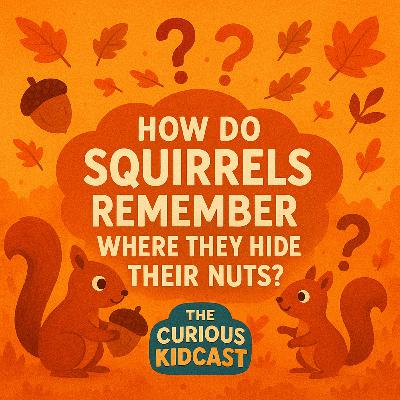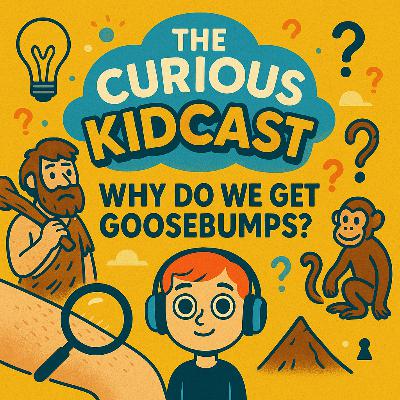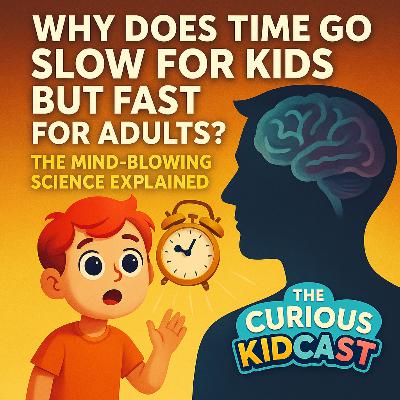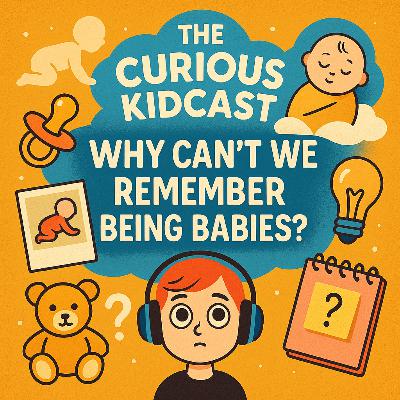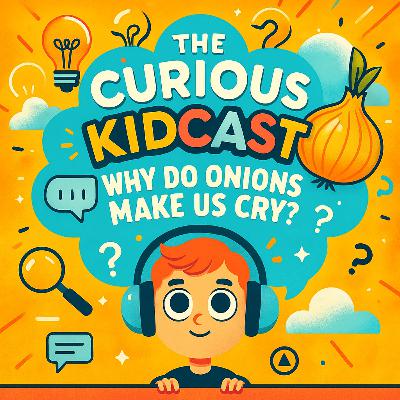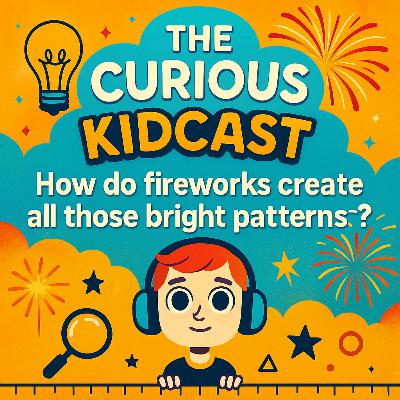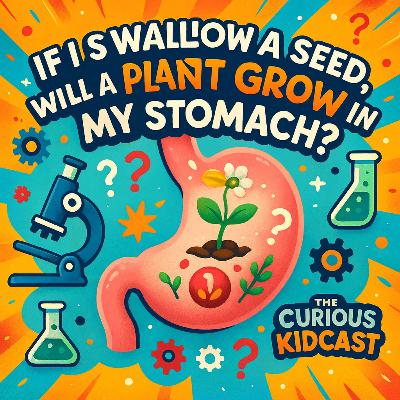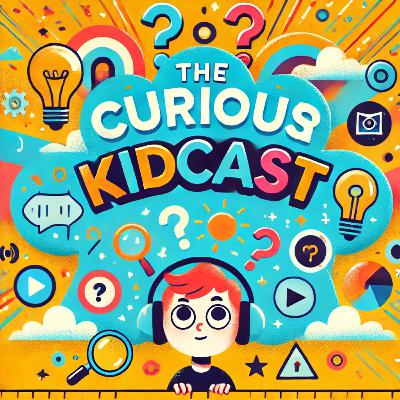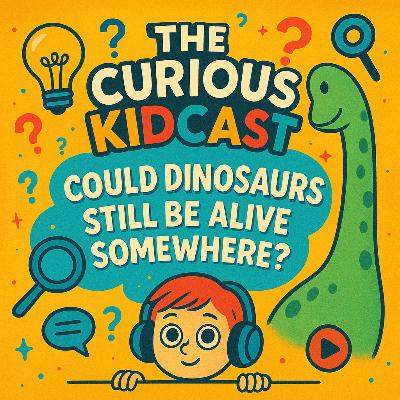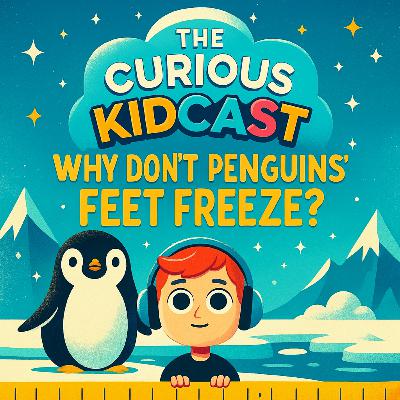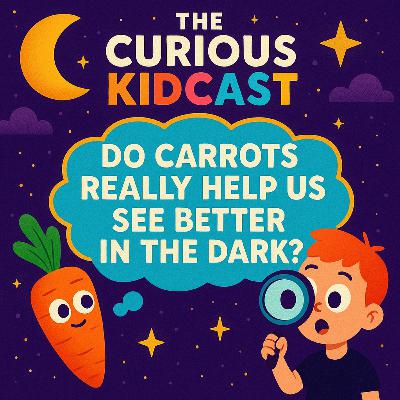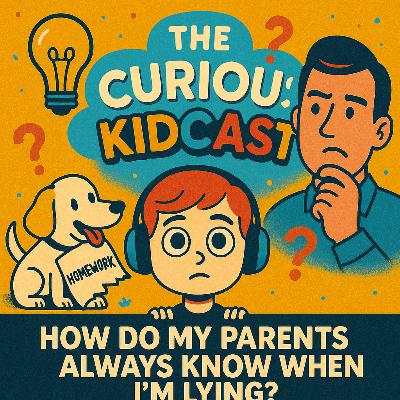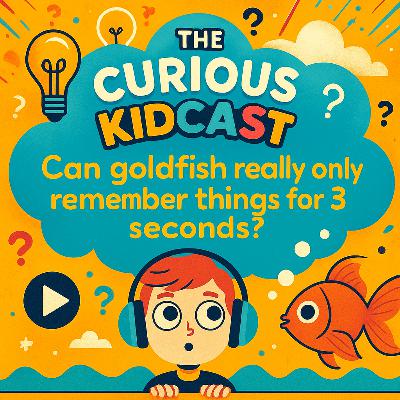How do squirrels remember where they hide their nuts? | Animal Adventures for Kids
Description
Join host Andy on The Curious Kidcast for an exciting educational adventure into the amazing world of squirrel science! This fun, kid-friendly podcast episode answers a fascinating nature question: How do squirrels remember where they hide thousands of nuts?
Perfect for homeschooling families and parents looking for engaging educational content, this science podcast for kids explores animal behavior, brain science, and ecology in an entertaining way that makes learning fun for children.
What Your Kids Will Learn
This educational episode is packed with fun facts and science knowledge that will captivate curious young minds:
- Brain Science for Kids: Discover how the hippocampus works as the brain's GPS and helps with spatial memory
- Animal Behavior: Learn why squirrels practice "scatter hoarding" and how they organize their food
- Nature Facts: Understand how squirrels use landmarks, smell, and patterns to find hidden nuts
- Ecology Education: Explore how forgotten nuts help forests grow and why squirrels are "accidental gardeners"
- Wildlife Science: Compare different squirrel species and their unique food-storing strategies
- Fun Squirrel Facts: Did you know a single squirrel can bury up to 10,000 nuts per year?
Episode Highlights & Fun Facts
Amazing Squirrel Science Facts Kids Will Love:
- Squirrels can bury up to 10,000 nuts in a single year
- The hippocampus in squirrels' brains grows larger to help them remember hiding spots
- Squirrels use "deceptive caching" - they trick other squirrels by pretending to bury nuts
- Forgotten nuts help plant new trees, making squirrels important for forest ecosystems
- Squirrels can smell nuts buried under several inches of snow
- Baby squirrels are called kits or kittens
- Squirrels have been around for 36 million years
- Different squirrel species use different food storage strategies
Key Learning Concepts for Homeschooling:
- Biology: Brain anatomy, animal adaptations, mammal behavior
- Memory Science: Spatial memory, cognitive development, learning through practice
- Ecology: Seed dispersal, forest ecosystems, animal-plant relationships
- Scientific Method: How researchers study animal behavior through experiments
- Critical Thinking: Understanding why animals behave the way they do
Perfect for Homeschool Science Curriculum
This educational podcast episode aligns with elementary science standards and makes an excellent addition to homeschool learning resources. Use it to teach:
- Animal adaptations and survival strategies
- Brain science and memory formation
- Forest ecosystems and seed dispersal
- Scientific observation and inquiry skills
- Nature appreciation and wildlife conservation
Interactive Quiz Included
Test your child's learning with three fun science questions featured in the episode:
- What part of the brain helps squirrels remember?
- How many nuts can a squirrel bury in one year?
- What happens to forgotten nuts?
Topics we explore: Animal science, nature facts, space exploration, how things work, biology, physics, earth science, weather, and more!
About The Curious Kidcast
The Curious Kidcast is an educational science podcast for kids aged 7-11, hosted by Andy. Each episode answers real questions from curious young listeners, making complex scientific concepts fun and easy to understand. Perfect for homeschooling resources, car rides, family time, or encouraging independent learning in children.
Why families choose The Curious Kidcast:
- Educational content that kids actually enjoy
- Age-appropriate science explanations
- Encourages curiosity and critical thinking
- Supports STEM education at home
- Perfect for visual and auditory learners
- Screen-free educational entertainment
Tags: science podcast for kids, educational podcast, kids learning, homeschool science, nature education, animal facts, brain science for children, fun learning, family podcast, parenting resources, STEM education, curious kids, wildlife science, squirrel facts, ecology for kids, homeschooling resources, educational entertainment, science for children

